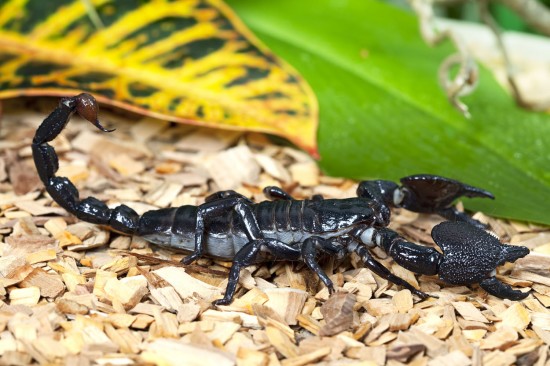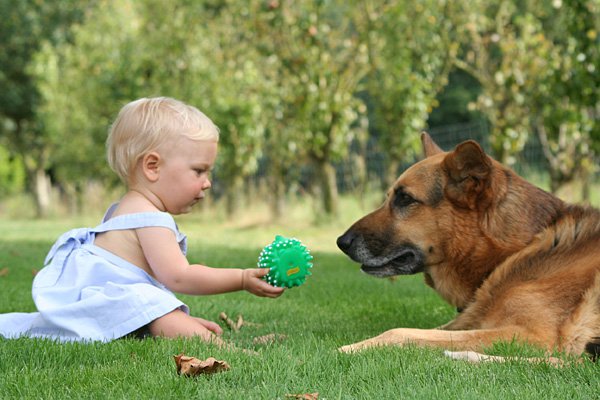

Just about the only pet invertebrate more likely to invoke a horrified reaction in the general pubic than the more commonly kept tarantula, is the scorpion! Indeed, when you consider their rather sinister and alien appearance, and of course, their lightning-fast stinging tail, it is no wonder that the average person browsing for a new potential pet, even an exotic one, is likely to give the scorpion a wide berth.
Nevertheless, as our interest in exotic and unusual pets and our understanding of how to keep and house them has increased over the last 10-15 years, so too has interest in keeping an ever-widening range of interesting invertebrates, and they don’t come much more exotic or interesting than the scorpion!
Scorpions can be kept in small colonies in tanks within the home, and while it is generally advised not to handle or pick up scorpions unless absolutely necessary, they still make interesting and educational pets to observe and care for.
There are almost 1,500 different species of scorpions in the world, all of which have the signature stinging tail or “telson,” which they use to disable their prey. Scorpions will also square up to much larger non-prey animals if they feel threatened, and all scorpions can potentially inflict a sting upon a person. However, only around 25 different species of scorpions out of the 1,500 or so different varieties are highly venomous and capable or severely injuring or killing a person, and naturally, these varieties of scorpions are not the type that are usually kept as pets!
Several different varieties of safer scorpion are commonly kept as pets, due to their reasonably large size and impressive appearance, and the fact that they are not considered to have a particularly strong sting. Most of the commonly kept pet scorpions in fact have a very weak venom, which is comparable to that found in a wasp or hornet sting. Naturally, it would of course still be very unpleasant to be stung by any kind of scorpion at all, although the sting of the commonly kept pet scorpions will not prove dangerous in people unless they happen to be unlucky enough to be allergic to the venom.
Some of the most popular types of beginner scorpions for the first-time keeper include the Emperor Scorpion, Flat Rock Scorpion, and the Java Forest Scorpion. These types of scorpions have the weakest type of venom of all of the common varieties, and also are not renowned to be aggressive and will only strike if they feel threatened.
Most varieties of scorpions hail from humid jungle climates, and so need to be kept in a fairly humid environment in captivity. They will need a glass terrarium that need not be huge, but should be sufficient for your scorpions’ needs, up to around two feet high and wide. They also require their environment to be heated to a constant temperature, which is most easily achieved by using a heat mat under the substrate of the tank itself. Scorpions like to burrow in the ground, and so providing a suitable substrate such as vermiculite or a specially designed jungle substrate a few inches thick is also necessary. You will also need to provide some cover and ornamentation in the tank for your scorpions to hide in, such as a hide, some artificial plants and some bark.
Most scorpions, particularly those that hail from tropical jungles, require a reasonable level of humidity within their tank. This usually necessitates using a hand sprayer of clean, fresh water to lightly spray the substrate of the tank twice a day, and also, checking the substrate regularly to make sure that it is moist enough, and wetting it if it is drying out. Monitoring the temperature and humidity of the tank is important, for which you will need a thermometer and hygrometer, as well as of course a dish for water.
Scorpions are carnivorous, and need to be fed live prey! Crickets usually form the staple diet of most scorpions kept in captivity, and other insects such as mealworms, some types of cockroach, stick insects, and grasshoppers can also be fed. It is important to make sure that no biting or poisonous insects are fed to your scorpion, as these might harm your scorpion while trying to escape from being eaten!
Feeding a varied diet is recommended to keep scorpions in good health and optimum condition, and all insects should themselves be in good health, plump, and gut loaded before feeding to scorpions to ensure that they are full of nutrients.
As all scorpions can potentially sting and there is no real reason to handle them, it is advised not to handle pet scorpions at all unless absolutely necessary. For the same reason, children should never handle or be responsible for the care of scorpions, and special care must be taken for people who are often sensitive to bites and stings, as even the weak venom of popular pet scorpions can induce anaphylactic shock in people who are allergic to the venom.
 Choosing A Dog Or Puppy To Fit In With Your Family
Choosing A Dog Or
Choosing A Dog Or Puppy To Fit In With Your Family
Choosing A Dog Or
 Is The Hungarian Vizsla A Good Choice Of Pet?
Is The Hungarian
Is The Hungarian Vizsla A Good Choice Of Pet?
Is The Hungarian
 Dachshund Or “sausage Dog” Health And Wellness Considerations
Dachshund Or “sau
Dachshund Or “sausage Dog” Health And Wellness Considerations
Dachshund Or “sau
 Why Adopt A Pet?
Why Adopt A Pet?
Why Adopt A Pet?
Why Adopt A Pet?
 Gift your Pets a Warm, Stay in Cosy Chicken Coops
Gift your Pets a Warm, Stay in Cosy Chicken Coops
Gift your Pets a Warm, Stay in Cosy Chicken Coops
Gift your Pets a Warm, Stay in Cosy Chicken Coops
Copyright © 2005-2016 Pet Information All Rights Reserved
Contact us: www162date@outlook.com